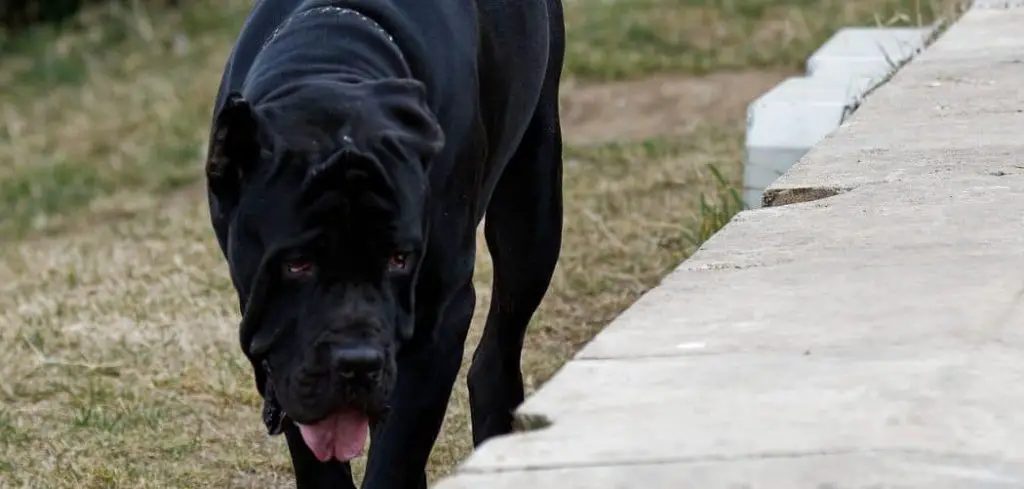Is your dog acting out of character—maybe pacing, hiding, staring off, or being extra clingy—and refusing to eat?
When a dog is acting weird and not eating, it’s often a sign that something more serious is going on than just being in a bad mood or feeling picky.
Dogs tend to mask illness and pain, so behavioral changes can be your earliest warning that something’s wrong.
We outline the most common reasons behind a dog acting weird and not eating, what you can do at home, and when to get veterinary help.
Dog Acting Weird and Not Eating: Why It Happens
A dog acting weird and not eating could be experiencing pain, anxiety, gastrointestinal distress, neurological changes, toxin exposure, or an underlying medical issue such as kidney failure or infection.
These symptoms often go hand in hand because behavioral shifts are a dog’s way of communicating that they feel unwell, confused, or distressed.

Dog Acting Weird and Not Eating: Common Causes
1. Pain or Discomfort
Pain is one of the most common reasons a dog may start acting strangely and refuse to eat.
They might pace, hide, growl when touched, or avoid stairs or jumping.
Painful issues like arthritis, dental disease, abdominal inflammation, or injury can cause subtle changes in posture, appetite, and mood.
2. Gastrointestinal Upset
A dog with a stomachache, gas, nausea, or bloating may act restless, arch their back, lick the floor, or refuse food entirely.
They may also drool, try to eat grass, or vomit. Dogs instinctively avoid eating when their stomachs hurt.
Even mild GI irritation can trigger very odd behavior in some dogs.
Related: Dog vomiting and not eating (Causes and when to worry)
3. Anxiety or Stress
Dogs experiencing emotional stress—like after a move, loud fireworks, a new pet, or changes in routine—can become clingy, withdrawn, hyper-alert, or nervous.
These emotional changes often suppress appetite.
Dogs with separation anxiety may even develop gastrointestinal symptoms and stop eating when left alone.
4. Neurological Issues
Strange behaviors like staring into space, circling, excessive head shaking, or unresponsiveness may indicate neurological problems.
These could be due to seizures, brain inflammation, or cognitive dysfunction (doggy dementia).
A dog acting weird and not eating, especially if paired with stumbling or twitching, needs urgent vet evaluation.
5. Toxin Exposure
Ingesting human medications, toxic plants, spoiled food, or chemical cleaners can cause a dog to act disoriented, uncoordinated, or suddenly lethargic.
Vomiting, drooling, and appetite loss often follow.
If your dog has access to anything unusual and now seems “off,” consider toxin ingestion a strong possibility.
6. Infection or Fever
A fever or systemic infection can make a dog feel tired, irritable, and generally “off.”
You may notice them avoiding their normal routines, sleeping in odd spots, and refusing food.
Eye discharge, nasal drip, coughing, or a warm nose can be clues that an infection is the root cause.
7. Cognitive Dysfunction (in Senior Dogs)
Older dogs may exhibit unusual behavior due to cognitive decline—confusion, pacing, whining at night, forgetting house training, or sudden loss of appetite.
If your senior dog seems increasingly “weird,” it might be time to talk to your vet about canine dementia or aging-related health conditions.
What to Do If Your Dog Is Acting Weird and Not Eating
If your dog’s behavior has changed suddenly, but they are otherwise stable, try the following at home while monitoring closely:
Create a calm, quiet space free from loud noises or disruptions.
Offer bland, easy-to-digest food such as boiled chicken and rice.
Tempt their appetite with a bit of warm broth or hand-feeding.
Check for signs of injury, bloating, or pale gums.
Limit physical activity and let them rest if they seem tired or anxious.
Avoid punishment or scolding if they’re behaving oddly—it may worsen anxiety.
If your dog refuses food for more than 12–24 hours or shows additional symptoms, contact your veterinarian.
When to Call or Visit Your Vet
You should call or visit your vet right away if:
Your dog’s weird behavior came on suddenly and severely.
They’ve refused to eat anything for more than 24 hours.
They’re stumbling, shaking, twitching, or unresponsive.
Vomiting, diarrhea, or signs of dehydration appear.
Their gums are pale, blue, or bright red.
You suspect they ate something toxic.
Your dog is very young, elderly, or has known health conditions.
Your vet may perform bloodwork, a neurological exam, imaging, or toxin screenings depending on the symptoms.
Treatment may include fluids, medications, or hospitalization depending on the underlying issue.
Key Takeaway
A dog acting weird and not eating is trying to tell you something—and it’s usually that they’re not feeling well physically, emotionally, or neurologically.
Whether it’s a passing stomach bug or something more serious like pain, infection, or neurological decline, these symptoms should always be taken seriously.
If your dog seems off and their behavior is unusual for them, don’t just wait and hope they’ll get better on their own.
Paying attention to changes and acting early can prevent more serious problems and get your pup the care they need.
